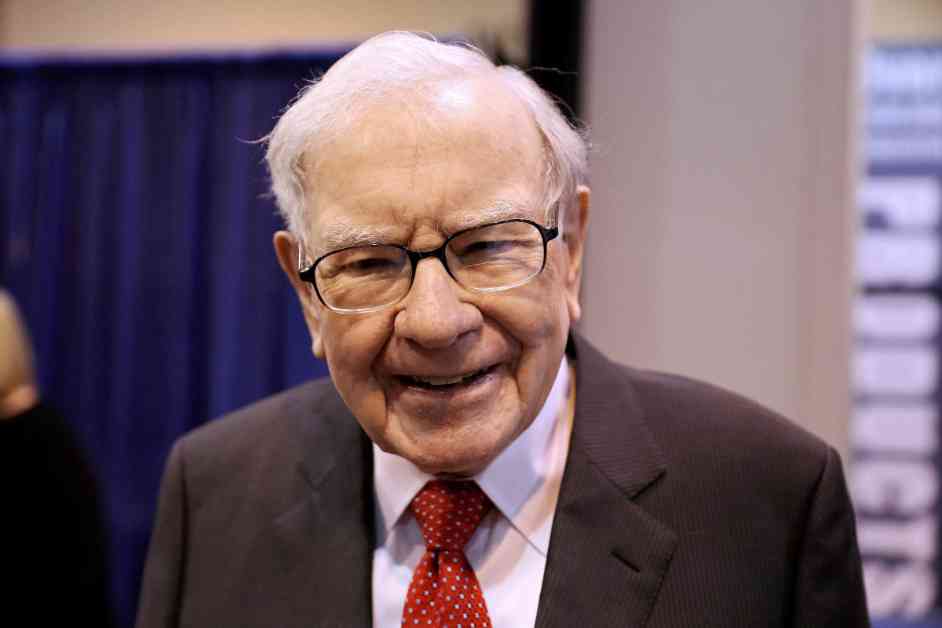Investors are showing a renewed interest in beauty stocks despite industry concerns, with prominent figures like Warren Buffett making significant investments in companies like Ulta Beauty. The beauty industry has long been known for its resilience during market downturns, as consumers tend to prioritize affordable luxuries like beauty and skincare products even in times of economic uncertainty. This phenomenon, often referred to as the “lipstick index,” suggests that people are willing to spend on small indulgences even when budgets are tight.
Despite the ongoing challenges facing the beauty industry, Warren Buffett’s recent purchase of over 690,000 shares of Ulta Beauty for $266.29 million in the second quarter indicates his confidence in the long-term potential of the sector. Buffett’s investment strategy is centered around buying great companies at reasonable prices, and the current market conditions may present an opportunity for investors to acquire shares of beauty brands at attractive valuations.
Beauty brands are adapting to changing consumer preferences and market dynamics by shifting their marketing strategies and product offerings. For instance, there is a transition from traditional anti-aging products to formulations that focus on renewal and rejuvenation. Similarly, skincare products are being positioned more as pharmaceutical solutions rather than just cosmetic enhancements. These changes reflect the evolving demands of consumers, particularly younger generations who seek effective solutions for common skin concerns like acne and wrinkles.
Estée Lauder, a prominent player in the beauty industry, has faced challenges in recent months, with its stock price declining significantly due to lower than expected sales in key markets like mainland China. The company’s overreliance on the “lipstick index” and its failure to effectively promote its brands on digital platforms have contributed to its struggles. However, analysts believe that a potential recovery in China and the company’s efforts to expand its online presence could drive growth in the future.
On the other hand, L’Oreal, the world’s largest beauty brand, has managed to navigate the challenges posed by the current market conditions more effectively. The company’s diversified product portfolio, including popular brands like Garnier and Maybelline, has helped it maintain market share and drive growth in key segments like skincare and fragrances. L’Oreal’s focus on e-commerce and innovation has enabled it to sustain positive sales growth and increase operating profit despite the industry-wide slump.
Elf Beauty, known for its affordable makeup and skincare products, has experienced significant stock price growth in recent years but has faced headwinds due to the overall industry downturn. The company’s reliance on Chinese imports for its products could be a potential risk if tariffs are imposed, especially under a reelected Donald Trump administration. Despite these challenges, analysts remain optimistic about Elf Beauty’s growth potential, citing its strong sales performance and aggressive innovation strategy.
Ulta Beauty, the focus of Warren Buffett’s recent investment, has shown resilience in the face of competition from rivals like Sephora and Amazon. The company’s retail footprint and cash reserves position it well for future growth, despite a slight dip in quarterly sales. Ulta Beauty’s commitment to returning value to shareholders through share buybacks and strategic investments could drive investor sentiment and support its long-term growth trajectory.
In conclusion, while the beauty industry is facing challenges in the current economic climate, there are opportunities for investors to capitalize on the sector’s long-term potential. Companies that adapt to changing consumer preferences, embrace digital transformation, and prioritize innovation are likely to thrive in the evolving beauty landscape. As Warren Buffett’s investment in Ulta Beauty demonstrates, there is value to be found in beauty stocks, especially when approached with a long-term perspective and a focus on fundamental value.













